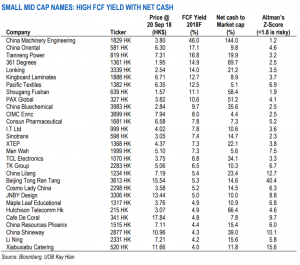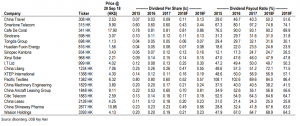Networking has become an integral part of job search in Singapore today, whether you’re in your 20s, 30s, or 40s. Here’s how you can start networking with these simple tips.
In Singapore’s job market today, actively networking for potential job opportunities can be just as vital as exploring job portals and answering newspaper ads. According to a global survey conducted by LinkedIn in March 2017, almost 80 percent of professionals value networking to get ahead in their career. If you are searching for a job in your 40s, keep these tips in mind when you go out to network.
Have Clear Objectives
Before attending an event, set some goals. This could be talking to employers to understand particular roles or chatting with other job seekers to learn about their experiences. Aim to make five new connections at an event . Here are a few simple steps to start a conversation at such an event:
Start by introducing yourself: “Hi, I’m Eric Tan and I’m looking at opportunities in the healthcare industry.”
Ask about them: “Are you hiring for your company?” OR “How did you hear about this event?”
Listen and keep the conversation going: “Yes I hear there are a number of jobs being created in the healthcare industry. What do you think of Singapore’s “smart healthcare” trends and their impact on the industry?”
Thank them and request to connect online: “It was nice talking to you. Do you mind giving me your email to keep in touch?”
Approach Networking Like a Consultant
Job searching is a two-way process. You want a job, but employers want to find a good candidate as well. Take confidence from your experience and approach networking like a consultant. Ask questions as if you are interviewing someone instead of being interviewed. If you are speaking to an employer, ask about the company’s future growth plans and working culture, as well as the challenges they may have had in hiring talent.
Some sample questions could include:
“What is the most important quality or skill your look for in an employee?“. The answer to this could give you an idea of how closely your skills match what a potential employer is looking for at a networking event, and how much of upskilling and training you will have to do, if needed.
“What is the biggest challenge you face in your growth plans and how can this role contribute to your company’s success?“. This will help you understand what you can do to make yourself invaluable to a company. For example, in a food tech company, if you are interested in a sales or client-facing role, chances are you are in the profit-centre of the company. On the other hand, if you work in the research, manufacturing or production side, one way to make yourself invaluable to the company would be to look at ways to streamline production or improve the quality.
“What growth opportunities do you provide for your employees and what is the working culture like?”. The answer to this will help you get an idea of how fast you could rise up the ranks and pay scale and how much of work-life balance.
You may then be able to pivot the conversation to share your specific experience and how it would fit with their organisation.
Sell Yourself and Follow Up Later
A handy tip is to create a personalised name card with your contact details, speciality, value proposition and a photograph, and hand it out to useful contacts. For example, stating your experience and qualities like “Experienced Business Analyst; Strategic Marketing Practitioner; Excellent People Management Skills ” could help you open up conversations.
Remember to ask for employers’ cards in return, so you can connect later to thank them for their time, send a copy of your resume, connect on LinkedIn or schedule a casual one-on-one catchup.
This article first appeared on MyCareersFuture. For more tips, resources and opportunities to get ahead in your career, visit MyCareersFuture today.
DollarsAndSense.sg aims to provide interesting, bite-sized and relevant financial articles.
Learn together with like-minded Singaporeans at the Personal Finance Discussion SG Facebook Group by discussing a range of personal finance topics.... https://dollarsandsense.sg/effective-networking-tips-singapore-working-adults-jobseekers-build-meaningful-connections/

